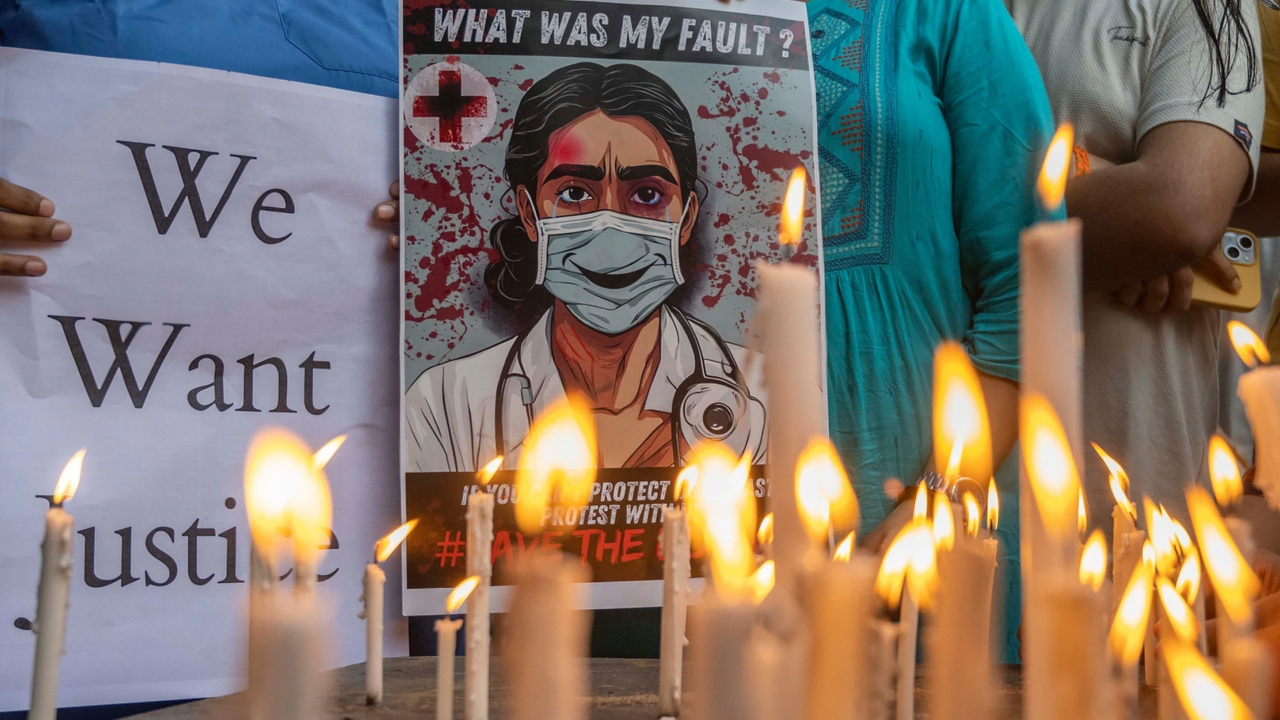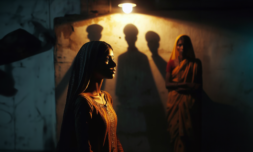‘Reclaim the Night’ protests have erupted across the country, after a trainee doctor was murdered during a shift.
On a humid night in West Bengal, tens of thousands of women took to the streets with a singular demand: justice.
The culmination of weeks of frenzied protests, the Reclaim the Night march was a response to the brutal rape and murder of a trainee doctor, who was killed during her shift at the RG Kar Medical College in Kolkata last week.
After a 36-hour shift, she had fallen asleep in a seminar room due to the absence of a designated rest area. Colleagues discovered the doctor’s half-naked body the next morning, bearing extensive injuries.
While the victim remains anonymous under Indian law, a hospital volunteer has now been arrested in connection to the crime. But the legal response did little to calm the public outrage that has followed.
According to protesters on the ground, ‘Reclaim the Night’ is a reference to the fact that the unnamed doctor was attacked at night on a Friday, while taking a break at work.
Women were quick to share their anger on social media, which led to dozens of smaller protests erupting across cities in India over the past week.
Protests have been largely peaceful, but some were marred by clashes with police and unidentified men who stormed the RG Kar Hospital and ransacked the emergency department.
‘We have never seen anything like this before in the city, such a huge gathering of women marching at night,’ a reporter told a local news network.
Protesters have been hopeful their actions will spark change amongst legislators, pointing to the widespread issue of violence against women across India.
‘This is unprecedented’ said Chaitali Sen, who was taking part in Reclaim the Night. ‘I hope it wakes up the authorities’.
Not just activists, but students, mothers, professionals, and survivors of assault have poured into the streets. They carried signs reading ‘No More Silence’ and ‘We Won’t Be Scared,’ defiantly reclaiming public spaces that often feel unsafe after dark.
The outcry hasn’t just been limited to the streets. Social media has become a powerful tool in amplifying voices, bringing attention to the issue on an unprecedented scale.
Hashtags like #ReclaimTheNight began trending on Instagram and Twitter within hours of the first protest, and powerful posts circulated, demanding action from the government and law enforcement.
The response online mirrors the rising tide of frustration among Indian women.
Instagram posts and X threads have highlighted the chilling frequency of these crimes, pointing to the rape and murder of an eight-year-old girl in Kathua in 2018, the 2012 Delhi gang rape, and countless other cases that have ignited temporary outrage but little systemic change.
In India, where justice can often be slow-moving and bureaucratic, the swift arrest of the suspect offered a momentary sense of relief.
“Women, Reclaim the Night” Protest. Apolitical & peaceful reclaim the night protest at Belgharia, Kolkata demanding strict action against the culprit & better law for rape crimes.
Women will rewrite History on the streets of Bengal#KolkataDeathCase #JusticeForMoumita pic.twitter.com/XKqXuXKHW2— Pragya Singha Roy (@Pragyasingharoy) August 15, 2024
But many fear that this case will soon fade from the headlines, and the underlying issues – poor security in public spaces, victim-blaming attitudes, and inadequate responses from law enforcement – will remain unaddressed.
One woman who joined the march with her 13-year-old daughter told reporters ‘ Let her see whether a mass protest can set things right. Let her become aware of her rights’.
Others have called out the complacency of law enforcement and legislators.
‘Women have no respect! Our worth is less than cows and goats.’
Another student asked ‘When do we get our independence? How long do we have to wait to work without fear? Another 50 years?’
And yet, amid the chaos and grief, there’s a growing sense of determination. Women of all classes and ages have come together to express their anger, with grandparents, mothers, and children marching in unity.
The women marching through Kolkata and other Indian cities are demanding more than just accountability for the murder of a doctor – they’re demanding a cultural shift.
They want streets that are safe to walk at night, workplaces that don’t enable harassment, and a legal system that doesn’t require victims to prove their worthiness for justice.
In the aftermath of the protests, some officials have vowed to review security protocols in public institutions like hospitals, while others are calling for harsher penalties for perpetrators of sexual violence. But the women who took to the streets know that promises alone are not enough.
If Reclaim the Night proves anything, it’s that India’s women are no longer willing to wait for justice – they are demanding it now.

















